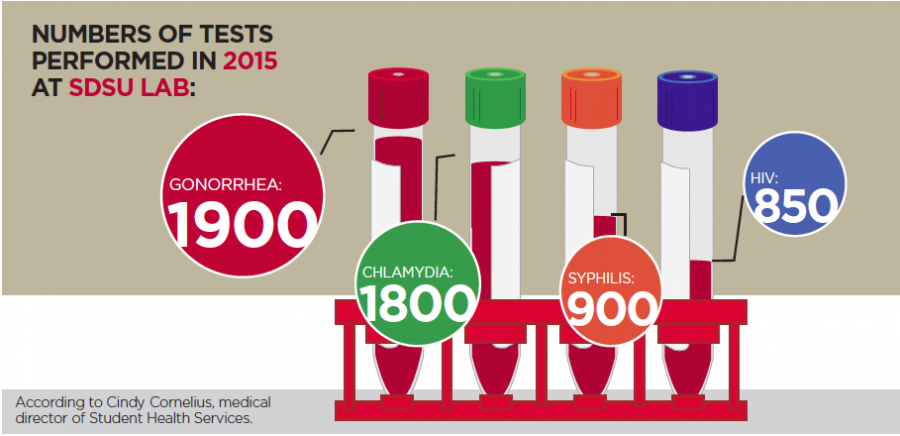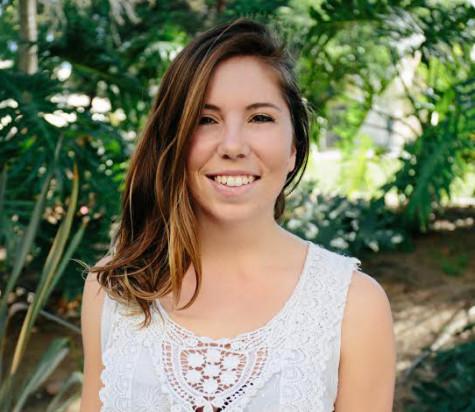A new screening system for STD testing will soon be available to students at San Diego State. While students previously were required to see a nurse practitioner or a physician to obtain an STD test, the new system relies on a machine.
“This is called self-directed STD testing and (it’s) only for screening purposes,” said Cynthia Cornelius, medical director for Student Health Services.
She said the department has recently gotten approval to purchase the machine, and they hope to have it up and running before the end of the spring semester.
While typical testing methods can require drawing blood, the machine works with urine samples, as well as vaginal and endocervical samples. Students can self-collect these samples rather than going through the process of an appointment and exam. Cornelius emphasized that the new system is only for STD screening.
“I think it will be a wonderful new option for students without symptoms or known exposure to an STD,” she said. “Of course, an exam is needed if a student is experiencing symptoms in order to provide a full evaluation.”
Student Health Services reported performing 1,800 chlamydia tests, 1,900 gonorrhea tests, 900 syphilis tests and 850 HIV tests in 2015.
Cornelius said SHS has recently had to increase the prices of STD testing, but that prices will drop when the machine is implemented.
“The cost of the testing on the new machine has not yet been determined but will be less than sending the tests to an outside lab to have done,” she said.
SHS isn’t the only organization on campus that promotes STD testing and healthy sexual behavior.
Kashmoné Hamilton is a staff member in the Health Promotion department, which was one of the organizations that participated in “Every Kiss Begins with Consent,” a campus event on Feb. 11 that emphasized the importance of a healthy sex life.
“I would say that some students are aware (of STD safety), but maybe not as educated as they would like to be,” Hamilton said.
“I feel they may not realize how common STDs are. Especially chlamydia, which is the most common STD among college students,” she said. “And a lot of these STDs are asymptomatic, which means you might not even realize you have them unless you went to the doctor and got tested. So we encourage people to get tested at least once a year.”
The California Department of Public Health has guidelines for how frequently people should be tested for various STDs.
The department recommends all sexually active women up to age 25 and all sexually active men at increased risk be annually tested for chlamydia and gonorrhea. All sexually active men and women should be tested for HIV at least once, and annually if they are at increased risk. Men who have sex with men and all people who are positive for HIV should be tested annually for syphilis.
“Increased risk” refers to people who have a new sexual partner, multiple sex partners or a sex partner who has multiple sexual partners.
For more information on STD testing and safe sex practices, contact Student Health Services or the Health Promotion department.












